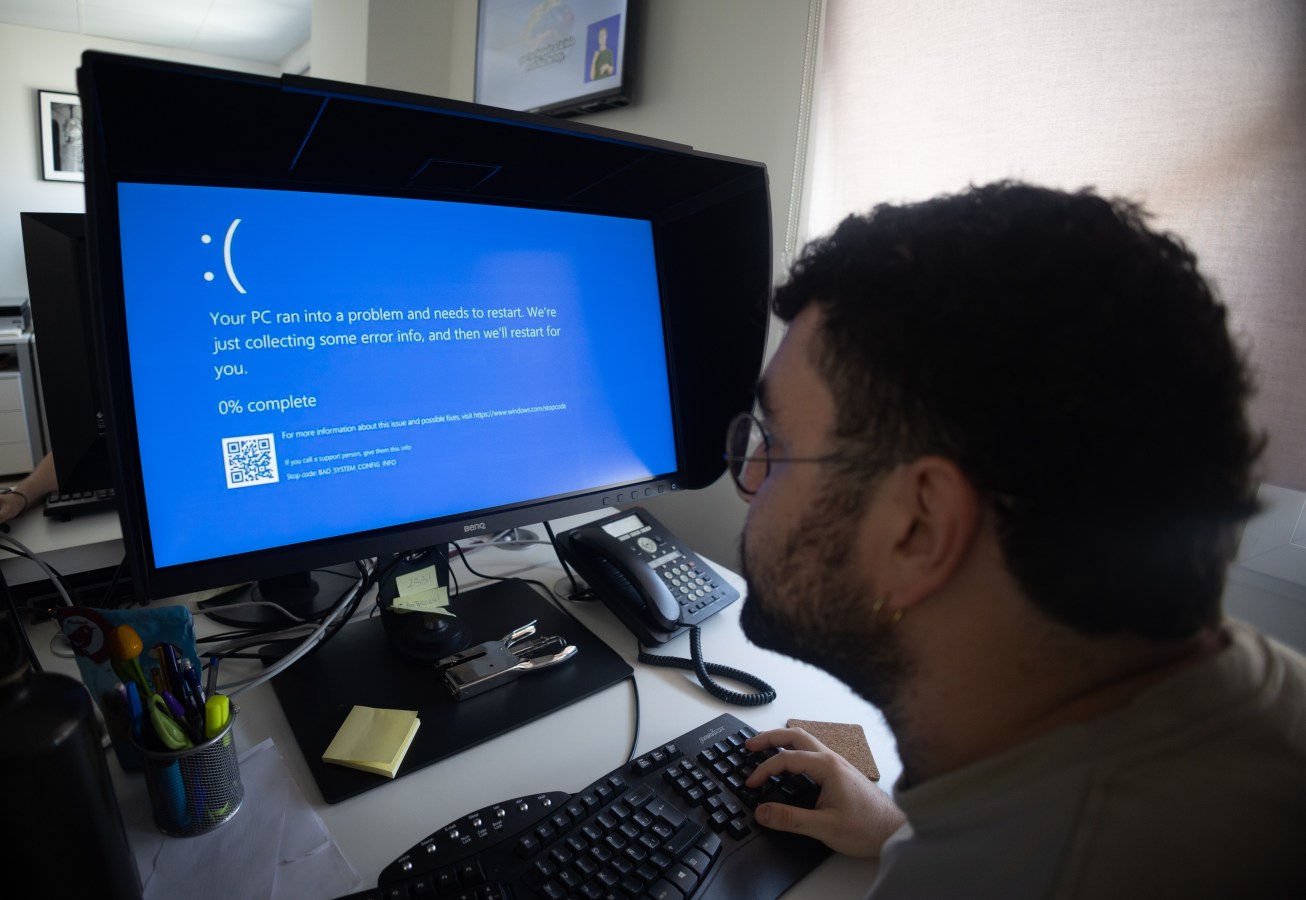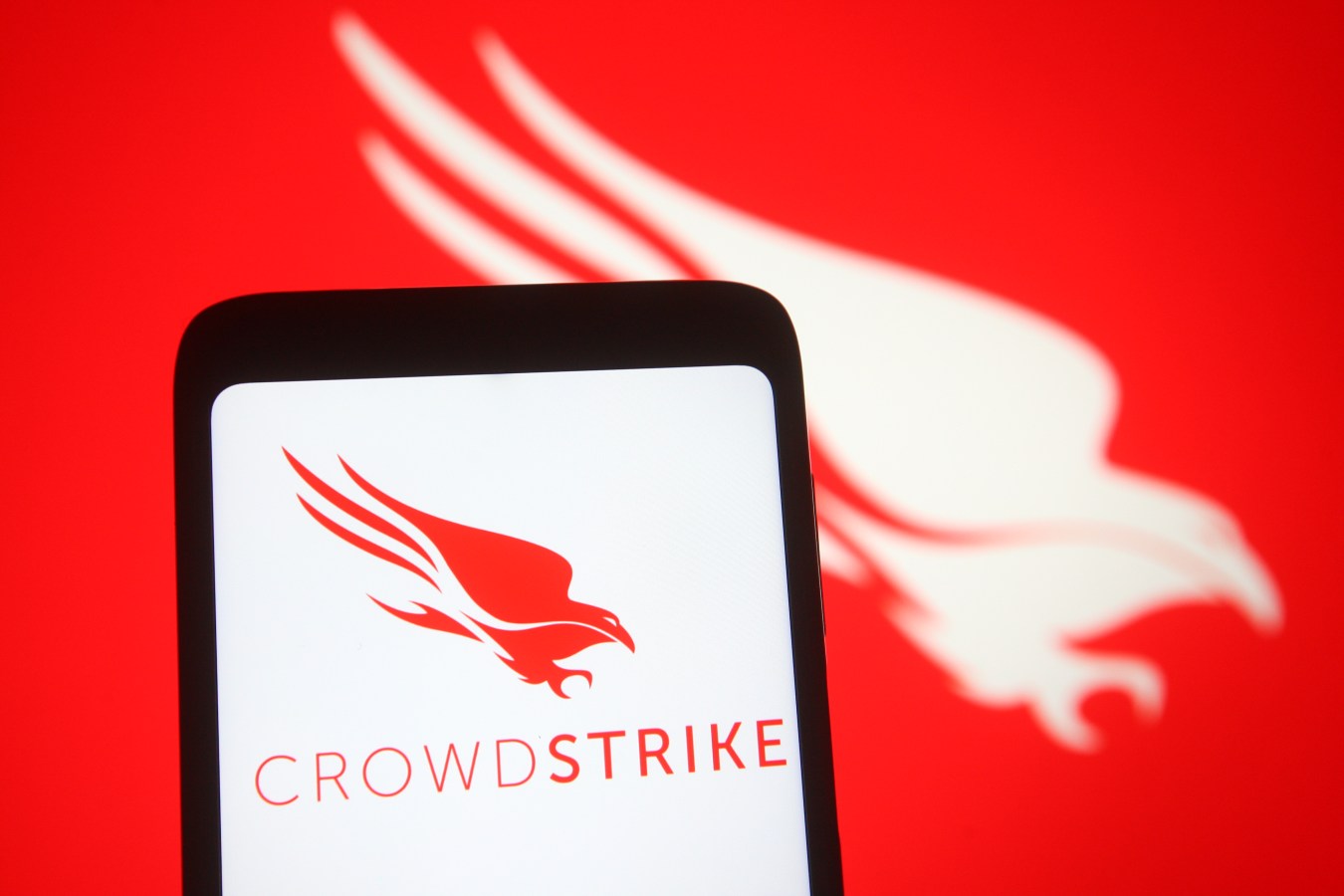It was a bad day for one race car-driving cybersecurity billionaire’s company—and wallet.

Friday’s tech outage hasn’t just cut people around the world off from their precious files, locked up their bank accounts and grounded their flights home—it has also taken a huge chunk out of George Kurtz’s fortune.
The billionaire cofounder and CEO of CrowdStrike, the cybersecurity company whose software sparked the outage, Kurtz’s net worth has dropped by about $300 million as of 3:30 p.m. Eastern on Friday, as shares of CrowdStrike stock have plunged 11% since Thursday’s close. Forbes estimates that Kurtz, who was worth more than $3.2 billion Thursday, now has a fortune of about $2.9 billion.
The reason for the drop is simple: Most of Kurtz’s wealth is tied up in CrowdStrike stock. He has served as CEO of the business since cofounding it in 2012. He owns more than 3% of the company shares. They’ve been a lucrative investment, helping propel the 53-year-old Kurtz from $1.2 billion in net worth following CrowdStrike’s 2019 IPO to $3.2 billion before Friday’s debacle, as the stock has more than quadrupled in value over the past five years amid a growing need for cybersecurity. Annual recurring revenue surpassed $3.4 billion in its most recent fiscal year, which ended January 31.
Then came the disastrous software update sent early Friday. While trying to send an update from its popular Falcon Sensor product, a cloud-based method of running cybersecurity operations, CrowdStrike sent a faulty file that ended up crippling millions of Microsoft computers around the globe.
The outage persisted, rendering devices running Windows useless as CrowdStrike and the tech world worked to get operations back on track. The company released a statement Friday, and Kurtz tweeted, “CrowdStrike is actively working with customers impacted by a defect found in a single content update for Windows hosts. … This is not a security incident or cyberattack.”
Related
The issue has been identified and a solution has been shared, CrowdStrike wrote in the statement. CrowdStrike stock nosedived in after-hours trading and opened Friday down 15% before rebounding slightly. Kurtz did not respond to a request for comment for this story.
Kurtz has a tenured history in the cybersecurity space. A Parsippany, New Jersey native, Kurtz was not raised wealthy. He studied accounting at Seton Hall University, then spent nearly a decade at consulting firm PWC and accounting giant Ernst and Young, much of it working in cybersecurity-related roles. He was one of the first five employees hired full-time in a cybersecurity position at for PWC.
In 1999, he struck out on his own, founding security consulting firm Foundstone in 1999. He sold the company, staffed by a team of former EY colleagues, to cybersecurity giant McAfee in 2004 for $90 million, according to Kurtz’s LinkedIn.
After joining McAfee as a senior vice president, he worked his way through the ranks and, in 2009, became chief technology officer. He cofounded CrowdStrike in 2012 and took it public on the Nasdaq in 2019. Along the way, the company made a name for itself, including by investigating the Russian intelligence hack of the Democratic National Committee in 2016. CrowdStrike was added to the S&P 500 Index last month.
Despite the big drop in his fortune on Friday, Kurtz—a lowkey billionaire who lives in Paradise Valley, Arizona with his wife and two kids—remains plenty rich. Besides sitting on CrowdStrike stock worth some $2.5 billion at current prices, he has sold off hundreds of millions of dollars’ worth of shares over the past five years to add to his bank account. And he’s an accomplished race car driver who won the LMP2 class at the 24 Hours of Le Mans in 2019. CrowdStrike is the “official cybersecurity partner” of the Mercedes-AMG Petronas Formula One team, which was also hit with the outage Friday.
Are you – or is someone you know -creating the next Afterpay or Canva? Nominations are open for Forbes Australia’s first 30 under 30 list. Entries close midnight, July 31, 2024.
Look back on the week that was with hand-picked articles from Australia and around the world. Sign up to the Forbes Australia newsletter here or become a member here.



